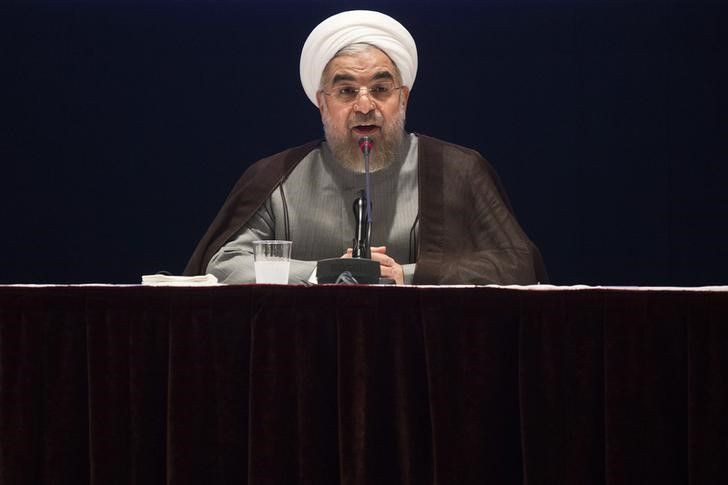Hassan Rouhani Hopes Iran Nuclear Deal Will Lift Sanctions In 2015

Iran is moving into 2015 with a renewed hope of lifting economy-crippling sanctions after President Hassan Rouhani indicated at an economic conference in Tehran Sunday he would give considerations of foreign policy priority in the coming year in an effort to reach an agreement in the continuing nuclear-program talks with Western powers by June 30, the Associated Press reported. Such a deal could lead to investment in the ailing Iranian economy.
“Our political life has shown we cannot have sustainable growth while we are isolated,” Rouhani said at the conference. “The time is past when it used to be said that if a foreign investor comes to Iran, our independence will be in danger.”
Rouhani’s comments mark a vast departure from the anti-Western rhetoric of his predecessor, Mahmoud Ahmadinejad, who regularly denounced attempts by the U.S. and Europe to dictate Iranian nuclear policy.
Economic sanctions on the Islamic Republic date back to the 1979 Iranian Revolution, but they grew in recent decades because of the country’s refusal to cooperate with Western powers over its nuclear program. It was believed Iran was attempting to build a nuclear weapon. The sanctions meant the resource-rich nation was unable to cash in fully on its oil and gas deals, with billions of dollars trapped in offshore accounts, unable to make it back into Iran.
However, Rouhani’s election as president in August 2013 marked a turning point in Iran’s foreign policy. The president, 66, addressed the United Nations in September 2013, a first step toward normal relations with the West.
Much of the politial turmoil since the Iranian Revolution has its roots in the actions taken by the U.S. and the U.K. in ousting the democratically elected Prime Minister Mohammad Mosaddegh in 1953 after he announced plans to nationalize the country’s oil industry. The issue is still raised to rile hard-line Western skeptics in Iran.
The next round of nuclear-program talks between Iran and the P5+1 group (Britain, China, France, Russia and the U.S., plus Germany) will commence in Geneva Jan. 15, as Agence France-Presse reported.
Meanwhile, Rouhani's message was clear Sunday when he stood next to a sign that read, “Sustainable Growth That Creates Jobs,” and said: “Our ideals are not connected to [nuclear-enrichment] centrifuges, but to our heart and will ... We want to stand on our own feet, we want to have less need to export oil ... If these things happen, our nuclear negotiations will move forward faster.”
© Copyright IBTimes 2025. All rights reserved.






















